The Find X3 Lite is the more affordable, lower-specification model in Oppo’s Find X3 smartphone line.
Phone specifications include a 6.4-inch AMOLED display with FHD+ resolution and 90 Hz refresh rate, a Snapdragon 765G processor with 8 GB RAM and 128 GB storage, as well as a 4300 mAh battery with 65W fast charging. The device also boasts a quad rear camera setup, including a 64 MP main sensor, 8 MP ultra-wide module, 2 MP macro camera, and a 2 MP mono sensor.
For video, the Find X3 Lite supports resolution up to 2160p/30fps, with slow-motion 1080p/120fps and 720p/240fps, as well as EIS video stabilization.
Let’s find out how the Oppo Find X3 Lite ranks in our database of smartphone image quality.
Key camera specifications:
- Primary: 64 MP sensor, 80° FOV, f/1.7-aperture lens with closed-loop focus motor
- Ultra-wide: 8 MP sensor, 119° FOV, f/2.2-aperture lens
- Macro: 2 MP sensor, 89° FOV, f/2.4-aperture lens
- Monochrome: 2 MP sensor, 89° FOV, f/2.4-aperture lens
- 2160p/30 fps, 1080p/120 fps, 720p/240 fps video (1080p tested)
- EIS video stabilization
About DXOMARK Camera tests: For scoring and analysis in our smartphone camera reviews, DXOMARK engineers capture and evaluate over 3000 test images and more than 2.5 hours of video both in controlled lab environments and in natural indoor and outdoor scenes, using the camera’s default settings. This article is designed to highlight the most important results of our testing. For more information about the DXOMARK Camera test protocol, click here. More details on how we score smartphone cameras are available here.
Test summary
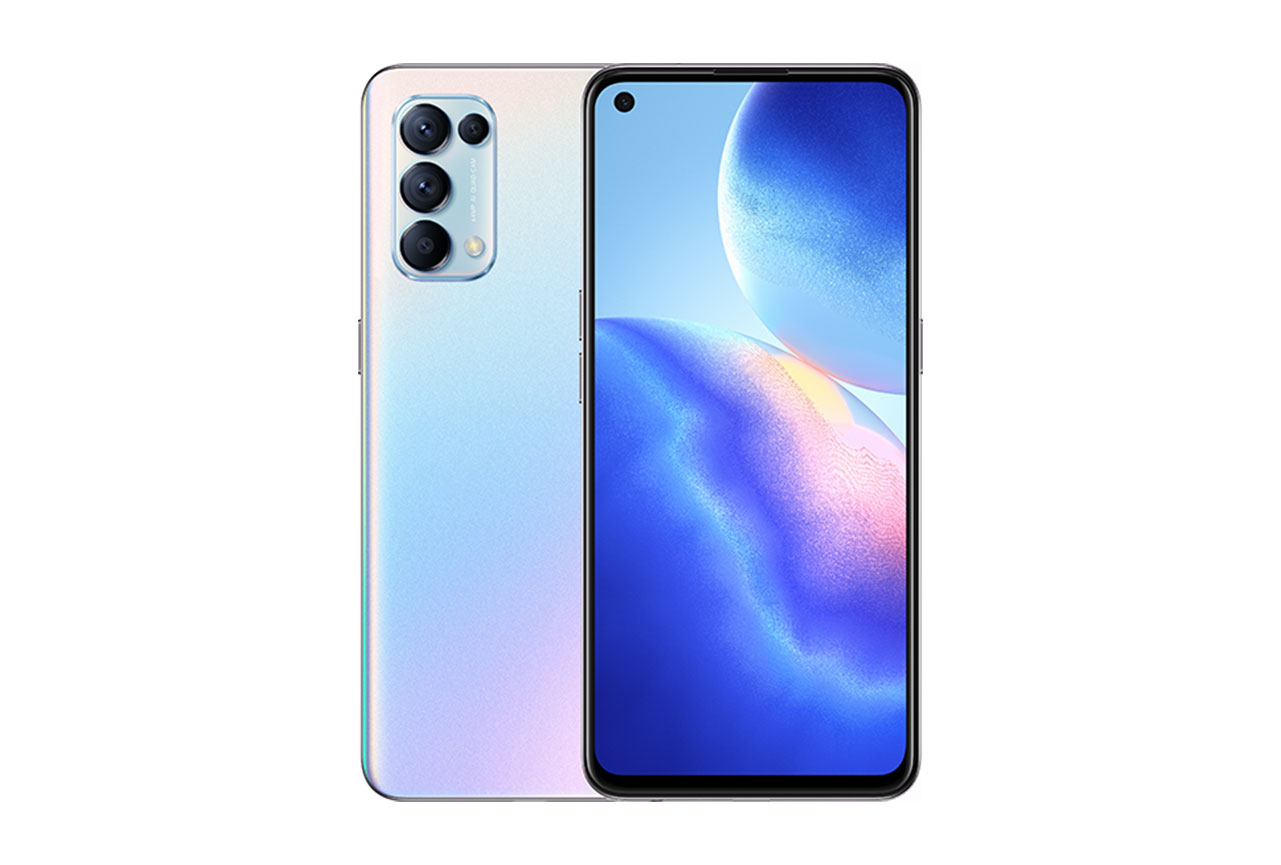
Oppo Find X3 Lite


Pros
- Accurate target exposure in indoor photos and videos
- Pleasant color rendering in outdoor and indoor photos
- Neutral white balance in outdoor and indoor videos
- Generally accurate autofocus in photos
- Acceptable noise in outdoor videos
Cons
- Low target exposure and limited dynamic range in low-light photos
- Visible noise in all photos
- Low detail in most photos and videos
- Color quantization artifacts often visible in photos
- Exposure instabilities in some videos
- Video autofocus failures sometimes visible in all tested conditions
With a DXOMARK Camera score of 105, the Oppo Find X3 Lite lands in the second tier of our smartphone rankings overall. However, the Find X3 is in joint fifth place in the high-end category of devices priced between $400-599.
The Find X3 Lite has a global score comparable to the Oppo Find X2 Neo’s. The X3 Lite performed slightly better against the X2 Neo in the Photo category, but the X2 Neo was better for Zoom (thanks to its tele module) as well as for video. The Find X3 Lite is 10 points lower than the newer and slightly more expensive Find X3 Neo.
Compared to the Samsung A52 5G, the Find X3 Lite scores 3 points higher overall because of better performances for the main camera and for video. It has a lower Zoom score, however.
Compared to the similarly priced Xiaomi Mi 11 Lite 5G, the Find X3 Lite scores 6 points lower overall. The Xiaomi is 10 points ahead in the Photo category and 6 points ahead for Video. The Find X3 Lite does fare slightly better for Zoom, however, thanks to marginally better quality tele-lens shots.
Below you can find a detailed analysis and image samples for all Photo, Zoom, and Video sub-attributes, as well as comparisons with such alternative devices as the Xiaomi Redmi Note 10 Pro, the Xiaomi Mi 11 Lite 5G, the Oppo Find X2 Neo, the Oppo Find X3 Neo, and the Samsung Galaxy A52 5G.
Photo
The Oppo Find X3 Lite achieves a Photo score of 108. In this section, we take a closer look at each sub-attribute and compare image quality against competitors.

Exposure and Contrast
Oppo Find X3 Lite
80
111
In these tests we analyze target exposure, contrast, and dynamic range, including repeatability across a series of images. Tests are undertaken in a wide range of light conditions, including backlit scenes and low light down to 1 lux. The score is derived from a number of objective measurements in the lab and perceptual analysis of real-life images.
This graph shows the Oppo Find X3 Lite’s target exposure performance under different lighting conditions in the lab.

Color
Oppo Find X3 Lite
95
107
In these tests we analyze color rendering, skin tones, white balance, and color shading, including repeatability across a series of images. The score is derived from a number of objective measurements in the lab and perceptual analysis of real-life images.
These samples show the Oppo Find X3 Lite’s color performance in an indoor scene.

Autofocus
Oppo Find X3 Lite
95
109
In these tests we analyze autofocus accuracy and shooting time, including repeatability, in the lab. We test focus failures, depth of field, and tracking of moving subjects using perceptual analysis of real-life images.
These samples show the Oppo Find X3 Lite’s autofocus performance and depth of field in an indoor group portrait.


Texture
Oppo Find X3 Lite
89
111
In these tests we analyze texture on faces and objects, including objects in motion, in a range of light conditions, using several lab test setups and perceptual analysis of real-life images.
This graph shows the Oppo Find X3 Lite’s texture performance under different lighting conditions in the lab.

Noise
Oppo Find X3 Lite
61
102
In these tests we analyze noise on faces and objects, including objects in motion, in a range of light conditions, using several lab test setups and perceptual analysis of real-life images.
These samples compare the Oppo Find X3 Lite’s photo noise performance under 1000 lux D65 lighting in the lab.

Bokeh
Oppo Find X3 Lite
55
80
For these tests we switch to the camera’s bokeh or portrait mode and analyze depth estimation, bokeh shape, blur gradient, and repeatability, as well as all other general image quality attributes mentioned above. The score is derived from perceptual analysis of real-life images.
These samples show the Oppo Find X3 Lite’s bokeh simulation in an indoor scene.

Night
Oppo Find X3 Lite
26
82
In these tests we shoot a selection of images in pitch-black darkness as well as with city lights in the background providing some illumination. We shoot sample images with the camera at default settings in both flash-auto and flash-off modes. We analyze all image quality attributes but we pay particular attention to exposure, autofocus, and color. We do not test night modes that have to be activated manually.
This sample shows the Oppo Find X3 Lite’s night performance for portraits in flash-off mode.

Artifacts
Oppo Find X3 Lite
59
77
In these tests we check images for optical artifacts such as vignetting, flare, lens softness in the corner, distortion, and chromatic aberrations, as well as for processing artifacts such as ghosting and fusion errors, hue shift, and ringing.
This sample shows color quantization in a low-light scene.

Preview
Oppo Find X3 Lite
48
80
In these tests we analyze the image quality of the preview image and the differences between preview images and captured images, particularly in terms of exposure, dynamic range, and bokeh effect. We also check the smoothness of the field-of-view changes on the preview image when zooming with both buttons or when using the pinch-zoom gesture.
These videos samples show the Oppo Find X3 Lite’s image smoothness in preview when users perform a pinch-zoom operation compared to a competitor.
Zoom
The Oppo Find X3 Lite achieves a Zoom score of 53. The Zoom score includes the tele and wide sub-scores. In this section, we take a closer look at how these sub-scores were achieved.

Wide
Oppo Find X3 Lite
28
58
In these tests we analyze the performance of the ultra-wide camera at several focal lengths from 12 to 20 mm. We look at all image quality attributes, but we pay particular attention to such artifacts as chromatic aberrations, lens softness, and distortion.
These samples show the Oppo Find X3 Lite’s ultra-wide camera under indoor lighting conditions compared to the competition.

Tele
Oppo Find X3 Lite
68
140
In these tests we analyze all image quality attributes at focal lengths from approximately 40 to 300 mm, paying particular attention to texture and detail. The score is derived from a number of objective measurements in the lab and perceptual analysis of real-life images.
These samples show the Oppo Find X3 Lite’s tele performance at a medium-range zoom setting under lighting conditions in the lab compared to the competition.
Video
The Oppo Find X3 Lite achieves a Video score of 95. A device’s overall Video score is derived from its performance and results across a range of attributes in the same way as the Photo score. In this section, we take a closer look at these sub-scores and compare video image quality against competitors.
In our Video tests we analyze the same image quality attributes as for still images, such as exposure, color, texture, and noise, but we also include such temporal aspects as speed, smoothness and stability of exposure, white balance, and autofocus transitions.
NOTE: The sample video clips in this section are best viewed at 1080p resolution.

Exposure and Contrast
Oppo Find X3 Lite
80
118
This video shows the Oppo Find X3 Lite’s video exposure performance outdoors.

Color
Oppo Find X3 Lite
87
107
These video stills show the Oppo Find X3 Lite’s video color indoors compared to the competition.

Autofocus
Oppo Find X3 Lite
87
109
This sample clip shows the Oppo Find X3 Lite’s video autofocus performance in the lab under 1000 lux D65 lighting.

Texture
Oppo Find X3 Lite
63
99
This graph shows the Oppo Find X3 Lite’s video texture performance under different light levels in the lab compared to the competition.

Noise
Oppo Find X3 Lite
78
105
This graph shows the Oppo Find X3 Lite’s spatial noise performance under different lighting conditions in the lab in handheld (dotted line) and tripod (solid line) tests compared to the competition.

Artifacts
Oppo Find X3 Lite
77
85
For video artifacts, we check for the same kinds of artifacts mentioned in the Photo section, along with such video-specific artifacts as frame rate variation in different light conditions, judder effect, and moving artifacts (artifacts such as aliasing, color quantization, and flare can often be more intrusive when moving than in a still image).
This video shows the Oppo Find X3 Lite’s hue shift artifacts in a low-light video.

Stabilization
Oppo Find X3 Lite
84
103
In these tests we analyze residual motion when handholding the camera during recording, as well as when walking and running with the camera. We also look for stabilization artifacts such as jello effect, sharpness differences between frames, and frame shift (abrupt changes of framing).
These sample clips show the Oppo Find X3 Lite’s video stabilization in outdoor conditions compared to the competition.


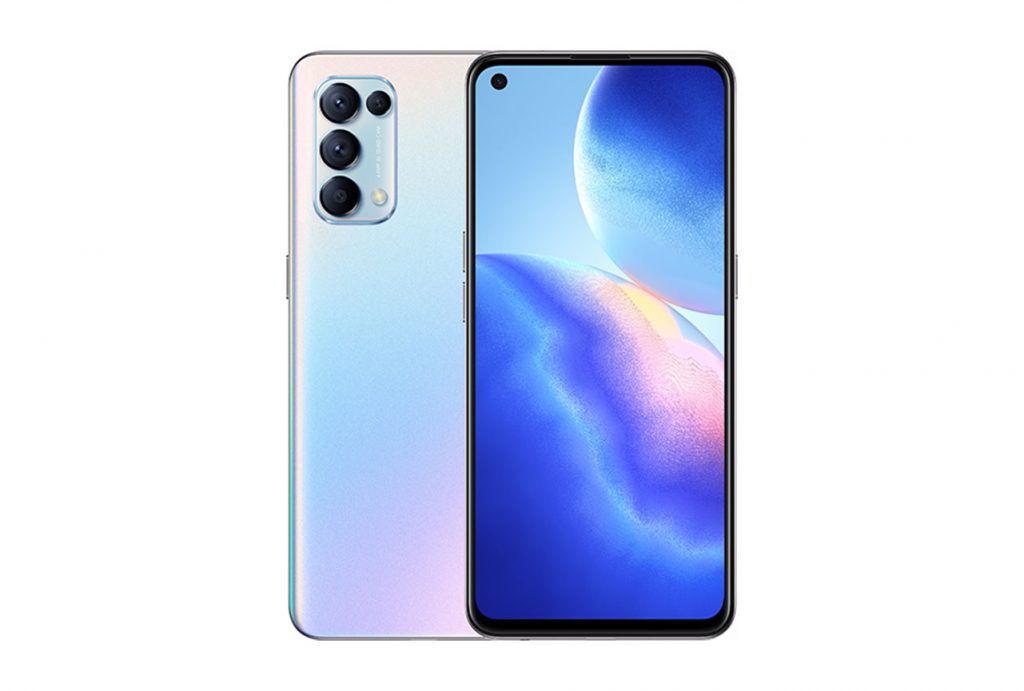


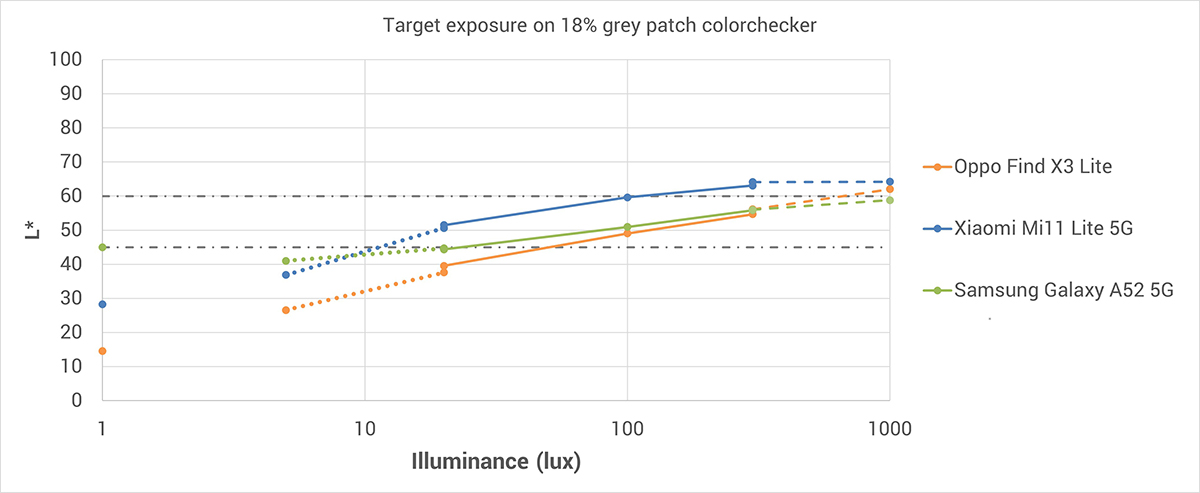




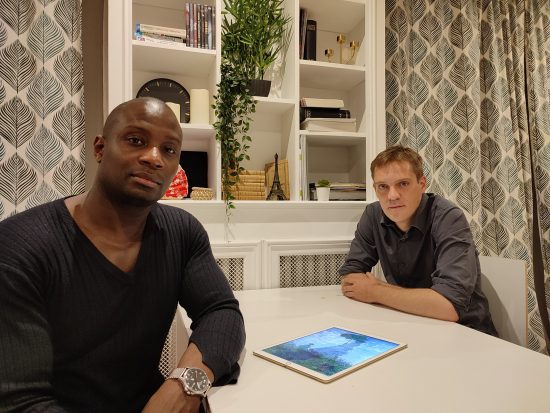
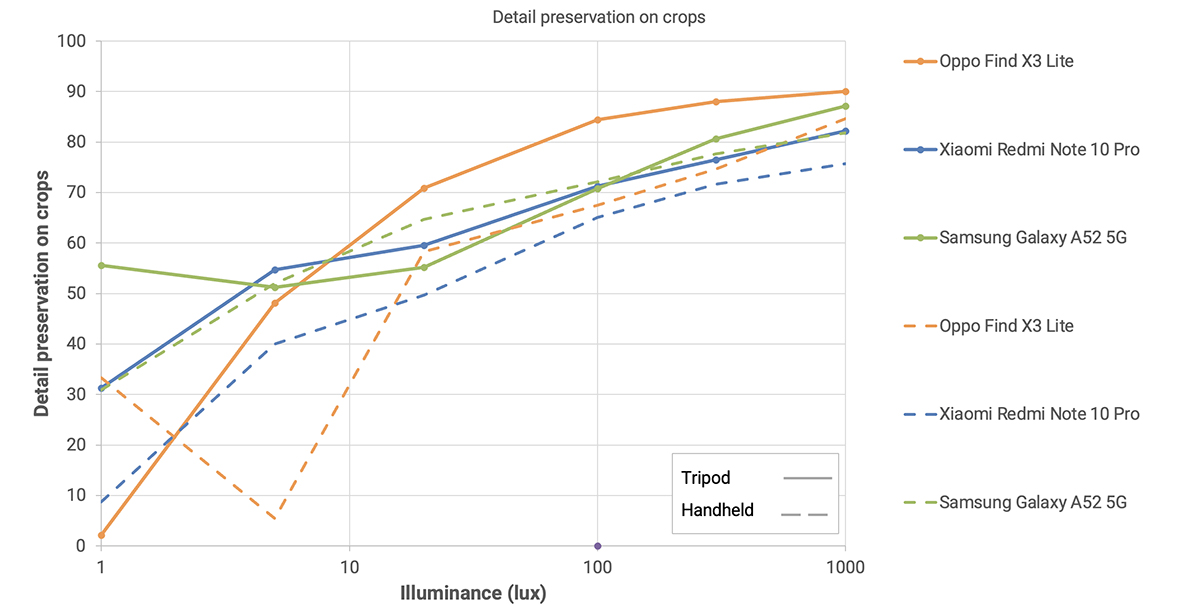






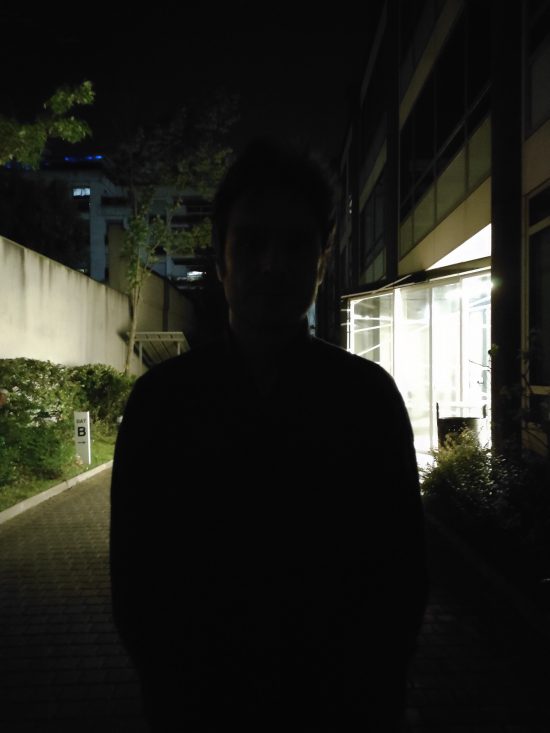
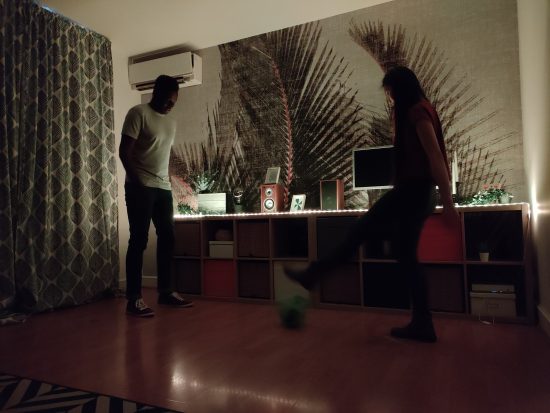
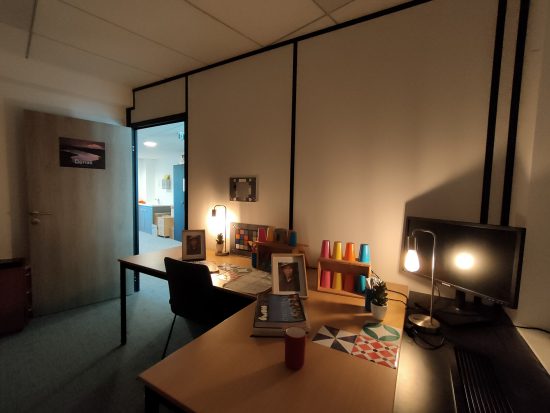
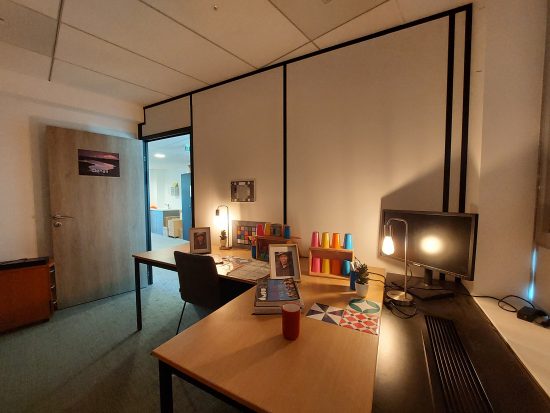
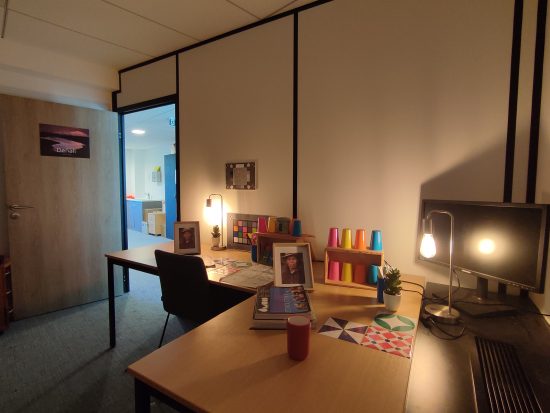



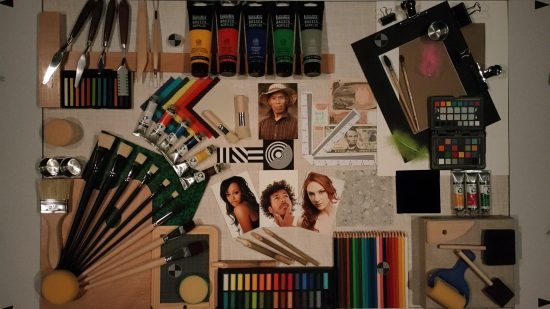

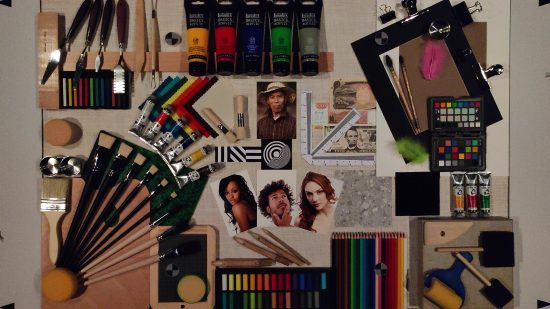
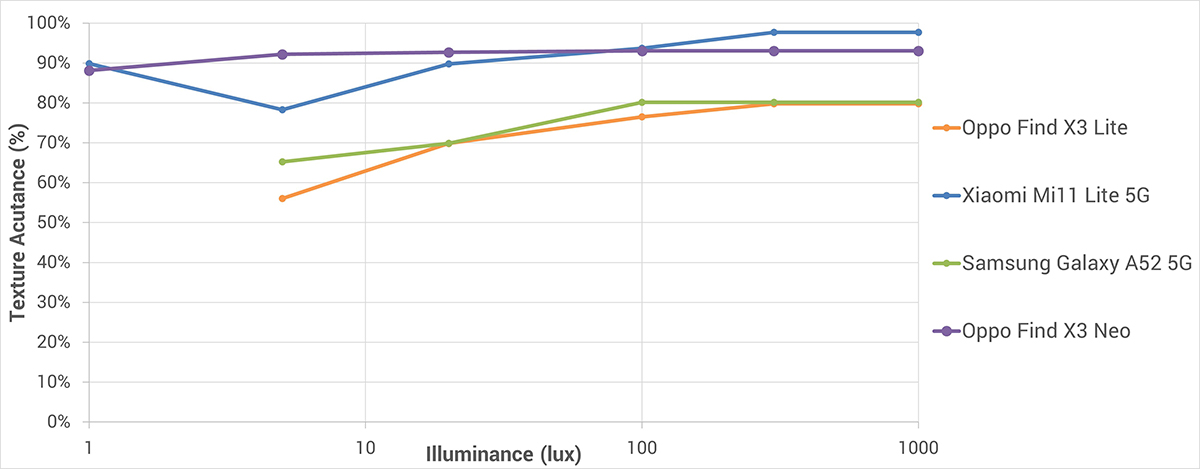
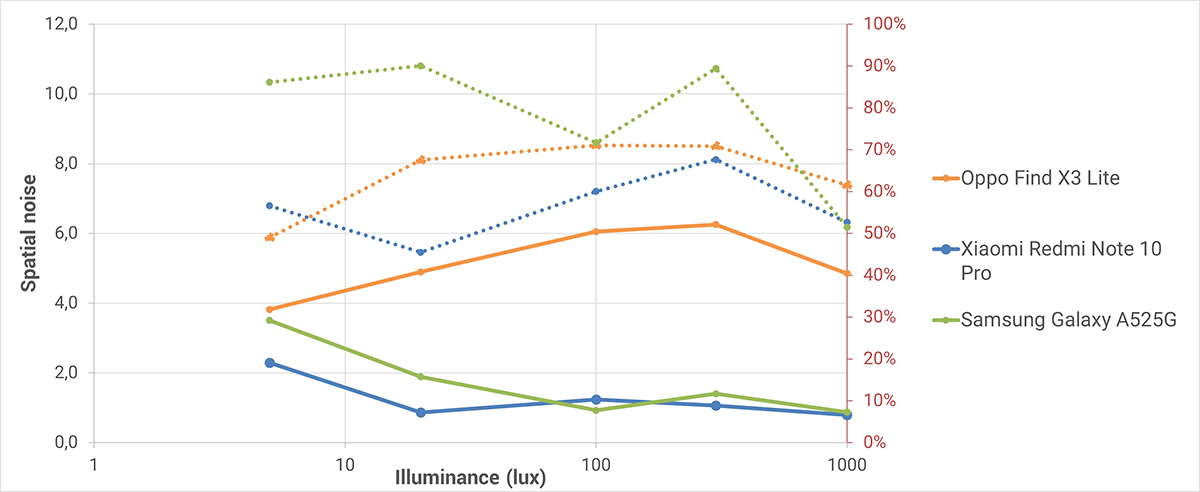
DXOMARK encourages its readers to share comments on the articles. To read or post comments, Disqus cookies are required. Change your Cookies Preferences and read more about our Comment Policy.